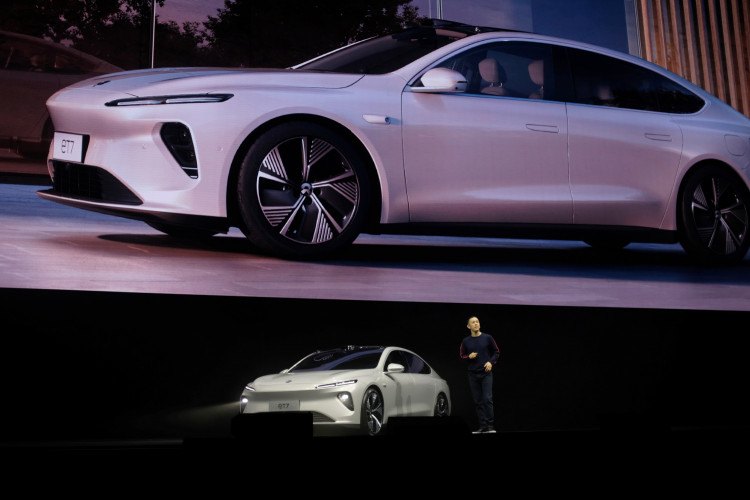As supply chains and output started to recover from the disruption caused by COVID-19 lockdowns in Shanghai and other cities, China's electric vehicle start-ups reported increased sales in May and anticipated additional improvements in June.
Nio Inc delivered 7,024 electric vehicles in 2017, up 5% from the past year. With 10,125 deliveries, Xpeng Inc increased by 78%. Li Auto Inc reported a 166% increase in May sales year over year to 11,496 automobiles.
Because of parts supply concerns, all three companies warned that output had not yet fully recovered.
China has proposed a slew of steps to boost vehicle sales and the economy, including reducing the tax on small-engine automobiles with sticker prices of up to $45,000. In a report released on Wednesday, Fitch predicted that sales in the world's largest auto market will increase by 3.9% this year, following 3.8% growth in 2021.
However, Fitch also issued a risk warning.
"The local market faces significant challenges, ranging from a limited supply of new vehicles, elevated unemployment, and weakness in the local construction and real estate sectors."
Li Auto warned that shipments from Shanghai suppliers were still being affected. Xpeng said two shifts at its plant in southern China had been restarted, and it was striving to speed up deliveries. Following recent measures to lift lockout limitations, Nio said it expects to raise output in June.
Industry-wide sales statistics for May are coming next week, including for China's EV leaders, BYD and Tesla.
Shanghai, a major manufacturing hub, completed a two-month lockdown on Wednesday. According to data provided on Wednesday, new infections declined for the 11th straight day, falling 52% to 15 in the last 24 hours. The number of cases with symptoms fell by 44% to five, and the death toll remained at zero for the fifth day.
However, new laws have been implemented, requiring residents to show a green health code on their smartphone in order to leave their residential areas and enter most places.
Those wishing to use public transportation or access banks or shopping centers must present a negative PCR test certificate issued within the last 72 hours. And the limits on leaving Shanghai persist, with anyone traveling to another city facing a seven to fourteen-day quarantine upon their return.
Cinemas, museums, and gyms are all still closed. Most youngsters will not return to traditional schooling.
According to state media, Wednesday was "a new start" and a day of "getting back to normal life, work and production"






